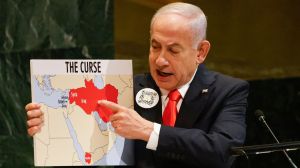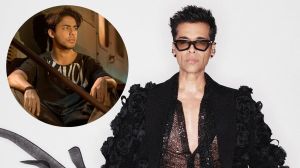`Alternate books’ compete with Grisham and Chopra at Delhi book fair
New Delhi, Aug 16: Competing with John Grisham, Deepak Chopra and William Shakespeare can be anything but a pleasant publishing experience...

New Delhi, Aug 16: Competing with John Grisham, Deepak Chopra and William Shakespeare can be anything but a pleasant publishing experience. But, even the hardest of the sceptics will agree that `alternate books’ have arrived in the country.
The number of non-governmental organisations at book fairs is on the rise, in a reflection of their increasing influence in opinion-making.
After exhibiting tiny toys till only a few years ago, the NGOs today pack their stalls with titles from dowry deaths to child abuse and are also finding buyers.
“There are people who are genuinely interested in alternate books,” says Shobha Ramachandran of the Bangalore-based `books for change’, one of the seven alternate book publishers participating at the ongoing sixth Delhi book fair.
`Books for change’, which has a stall at the fair for the first time, boasts of about 2,000 titles which they networked and sourced from NGOs, civil society organisations and institutions.
Several titles on display at its small stall appealed to Dr Sinha Wickremesekera, a Sri Lankan doctor in town for attending a three-month course at the Indian Institute of Communicable Diseases.
Dr Wickremesekera, who works with voluntary organisations in the field of community health and child abuse, shortlisted the stall when he visited the fair on the opening day.
Though these stalls are yet to get brisk business, the low price tag of their titles attract a constant flow of visitors. Most of the books at the Indian Social Institute’s stall, like its legal education series, cost as low as Rs six.
`Ekalavya’, a Bhopal-based NGO active in the field of children’s education, organises book exhibitions at government schools where big publishing houses never go. A regular at the Delhi book fair, the group has now opened a branch in the national capital.
The exhibits at its stall include a microscope, which can magnify objects 20 times, and the `soma cube’, a three-dimensional puzzle invented by Danish poet and puzzle inventor Piet Hein, to popularise science among children.
The microscope, which sells for Rs 80 at the fair, is available for Rs 50 at the exhibitions it conducts at government schools.
The Delhi-based `liberty institute’ stall has an impressive collection of literature on liberty from Adam Smith to Ayn Rand. The organisation, which advocates strong free market ideas, wants equal rights for citizens to choose their Prime Minister as well as products.
“Market is the manifestation of a democracy,” says Barun Smitra, founder of the thinktank, who argues that it was people’s choice that has made KFC close its shops and Macdonalds turn vegetarian in the country.
The fair also has a stall of the tribal research institute from Tripura, which has a variety of books on northeast tribes.







- 01
- 02
- 03
- 04
- 05
























